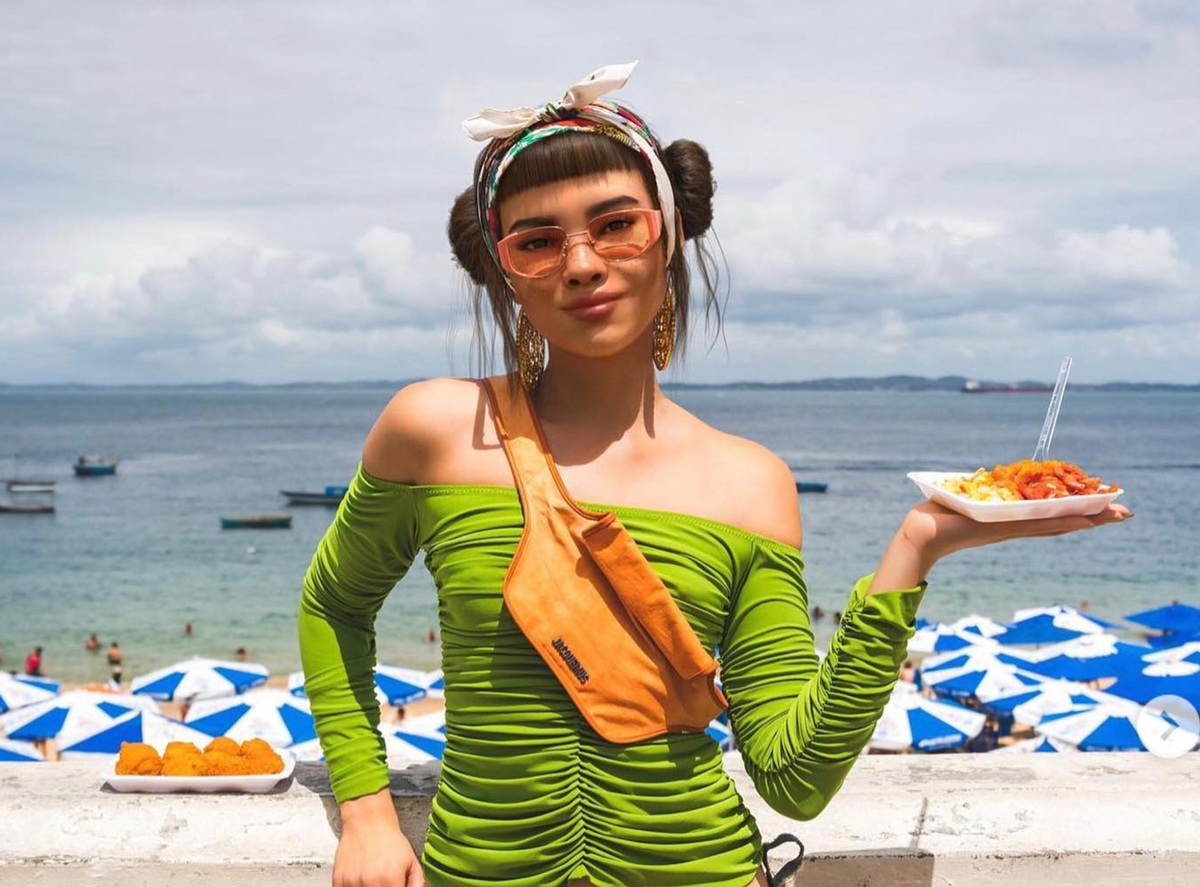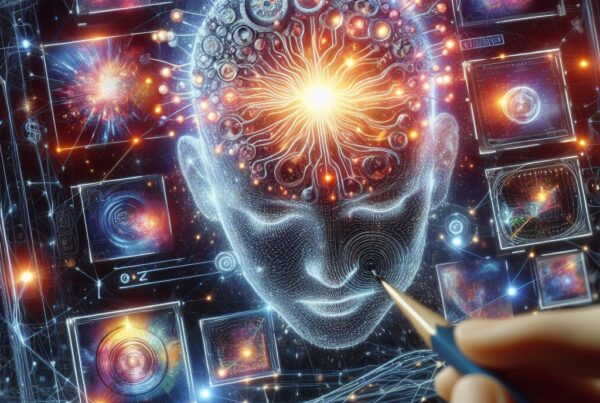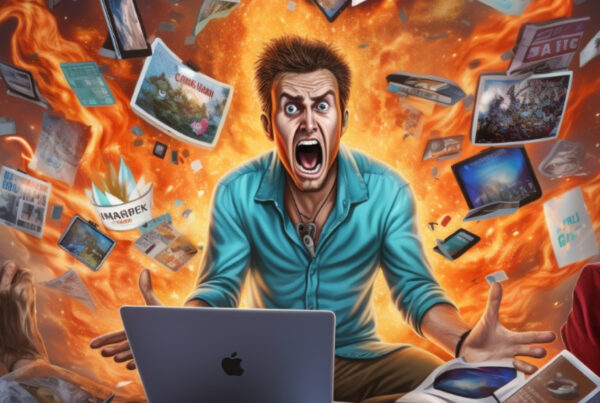In an ever-evolving digital landscape, the realm of social media has seen a profound transformation over the past decade. The emergence of influencers, individuals wielding their online presence to engage and sway massive audiences, has reshaped how we consume content and make purchasing decisions. As we continue to traverse deeper into the digital age, a novel trend has emerged: AI-enhanced social media influencers. These virtual personas are pushing the boundaries of what’s conceivable in the realm of social media, challenging conventional notions of fame, authenticity, and creativity. In this exposé, we embark on an exploration of the phenomenon known as AI-enhanced social media influencers, the driving forces behind their meteoric rise, and the ramifications for the future of digital marketing and entertainment.
The Genesis of AI-Enhanced Social Media Influencers
AI-enhanced social media influencers, often coined as virtual influencers or digital avatars, are computer-generated characters meticulously crafted to mimic human-like qualities, appearances, and behaviors. These digital personalities are brought to life through cutting-edge artificial intelligence, incorporating machine learning and computer graphics to simulate realistic facial expressions, body movements, and even emotions. While the notion of AI-driven characters has been a staple in the gaming and entertainment industries for years, it has recently infiltrated the domain of social media.
One of the earliest virtual influencers to seize the limelight was Lil Miquela, a computer-generated character birthed by the wizards at Brud. Making her Instagram debut in 2016, Lil Miquela promptly accrued a substantial following, obfuscating the line separating reality from fiction. Her Instagram feed chronicled her life, fashion choices, and philanthropic endeavors, all bearing the hallmark of authenticity. What set Lil Miquela apart was her uncanny ability to forge genuine connections with her audience, much like a flesh-and-blood influencer. Her rapid ascent to stardom underscored the potential of AI-enhanced influencers in forging profound personal bonds with people.
The Meteoric Ascent of AI-Enhanced Influencers
Several pivotal factors have contributed to the meteoric ascent of AI-enhanced social media influencers:
- Authenticity: Virtual influencers can be sculpted to maintain a steadfast persona, eliminating the vicissitudes of scandal or personal turmoil often plaguing human influencers. This dependability proves irresistible to brands seeking unwavering brand ambassadors.
- Customization: Brands can meticulously design virtual influencers to embody precise characteristics, values, and aesthetics that resonate seamlessly with their target demographics and marketing objectives. Such levels of customization are an arduous feat with human influencers.
- Superhuman Capabilities: AI-enhanced influencers possess the ability to undertake tasks and generate content far beyond the capacities of humans. They nimbly switch between languages, churn out content around the clock, and engage with legions of followers simultaneously.
- Timelessness: Unlike their human counterparts, virtual influencers do not age, succumb to illness, or necessitate vacations. They maintain their online presence unwaveringly, presenting brands with a long-term marketing solution.
- Cost Efficiency: While crafting a top-tier virtual influencer necessitates a substantial initial investment, the long-term fiscal prudence is unmistakable. They do not demand salaries, wardrobes, or travel expenses, rendering them an enticing prospect for brands.
Implications for Digital Marketing
The rise of AI-enhanced social media influencers brings forth profound implications for the sphere of digital marketing:
- Laser-Targeted Advertising: Virtual influencers can deliver hyper-targeted, personalized advertising content by harnessing AI to apprehend the predilections and behaviors of their followers, thereby amplifying the efficacy of marketing campaigns.
- Brand Cohesion: Brands can sustain consistent messaging and branding through virtual influencers, ensuring that their values and image are consistently conveyed to their audience.
- Global Outreach: Virtual influencers are unconstrained by geographic confines, enabling them to connect with audiences on a global scale, a compelling asset for international marketing endeavors.
- Innovative Narrative Crafting: AI-powered influencers can venture into experimental storytelling techniques, including interactive narratives and immersive experiences, thereby elevating audience engagement.
Challenges and Ethical Contemplations
Notwithstanding the manifold benefits, the ascendancy of AI-enhanced social media influencers also spawns substantial challenges and ethical quandaries:
- Transparency: The demarcation between reality and fiction can become tenuous when virtual influencers are employed to promote products or ideologies. Ethical concerns mount when followers are unable to discriminate between real and synthetic entities.
- Dilution of Authenticity: Authenticity constitutes the sine qua non of influencer marketing. The deployment of virtual influencers challenges this authenticity, potentially eroding the trust shared between influencers and their followers.
- Creative Control: The AI algorithms governing virtual influencers are products of human ingenuity, thus susceptible to inadvertently perpetuating biases or stereotypes. Ensuring responsible AI development is paramount.
- Privacy Apprehensions: Virtual influencers often hinge on data and information culled from social media users, raising valid privacy concerns as users might not be cognizant of how their data is being harnessed.
- Economic Upheaval: The ascendance of AI-enhanced influencers could potentially catalyze job displacement for human influencers, as brands might increasingly gravitate toward their virtual counterparts.
The Future of AI-Enhanced Social Media Influencers
As technology continues its relentless march forward, the future of AI-enhanced social media influencers promises to be replete with intrigue. Here are some prospective developments to monitor:
- Augmented Realism: AI algorithms will reach unprecedented levels of sophistication, birthing virtual influencers virtually indistinguishable from humans.
- Emotional Intelligence: Future virtual influencers may be endowed with advanced emotional acuity, enabling them to forge even deeper emotional connections with followers.
- Virtual Collaborations: Virtual influencers may engage in synergistic collaborations among themselves or with human influencers, resulting in dynamic content experiences.
- Regulatory Frameworks: Governments and regulatory bodies may erect guidelines and policies to navigate the ethical and legal conundrums associated with virtual influencers.
In Summation
The emergence of AI-enhanced social media influencers signifies a monumental transformation in the arena of digital marketing and entertainment. These virtual personas challenge our understanding of authenticity, creativity, and notoriety in the digital epoch. While they offer a multitude of advantages to brands and marketers, they also thrust forth vital ethical considerations that necessitate addressing as technology continues its inexorable progression. As we journey ahead, striking a harmonious balance between innovation and responsibility in harnessing the potential of AI-enhanced social media influencers becomes imperative.




